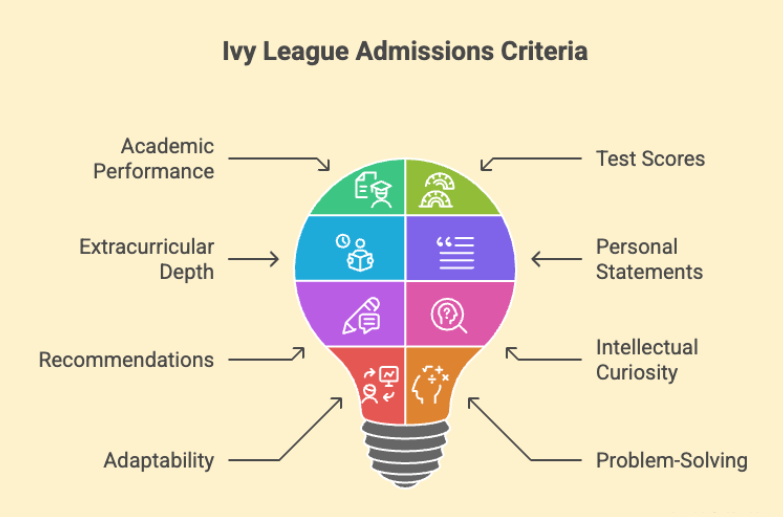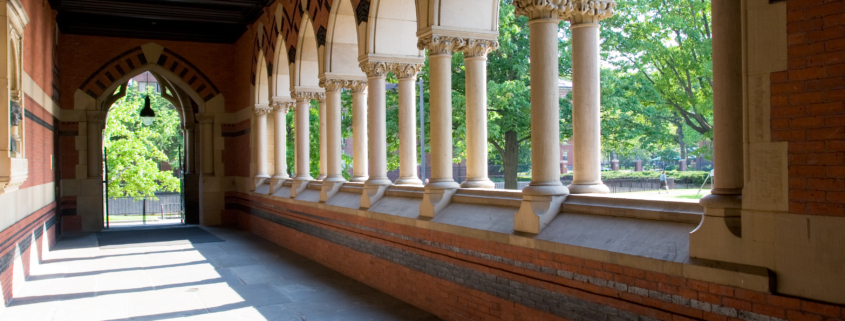The Ivy League has long been a symbol of academic prestige and opportunity. With acceptance rates often in the single digits, these universities attract some of the most talented students in the world. So, how difficult is it to secure a place? The answer: very challenging, but with the right preparation, you can become a competitive candidate.
This guide covers the most recent admissions data, factors that influence acceptance, and practical steps to strengthen your college application. You’ll also see how, with the right resources, students prepare for this high level of competition.
Ivy League Acceptance Rates: The Numbers Behind the Competition
Selective admissions are a defining characteristic of Ivy League schools. Tens of thousands of potential students submit applications each year for only a small number of available spots. Understanding current acceptance rates is a good first step toward setting realistic goals.
Here’s the most recent data for the Class of 2028/2029:
| University | Acceptance Rate |
|---|---|
| Harvard University | ~3.6% |
| Columbia University | ~3.9% |
| Yale University | ~3.7% |
| Princeton University | ~4.0-4.5% (est.) |
| Brown University | ~5.2% |
| University of Pennsylvania | ~5.4% |
| Dartmouth University | ~5.3% |
| Cornell University | ~5.9-8.0% |
Over the last decade, these percentages have steadily dropped, driven by larger applicant pools, international interest, and test-optional policies.
The statistics may seem discouraging, but they represent the entire applicant pool. A well-prepared, strategically built application can stand out even in a highly competitive environment.
What Ivy League Admissions Officers Look For

Although all eight member schools are selective, acceptance rates vary slightly. Grades and test scores matter, but they are only part of the picture. These universities assess applicants through a holistic lens, considering achievements, character, and potential contributions to the campus community.
At Ivy League schools such as Cornell University, Harvard University, Princeton University, and Yale, successful applicants typically have:
- Academic performance: Unweighted GPA close to 4.0 with rigorous coursework (AP, IB, or Honors).
- Test scores: SAT scores in the mid-1400s to high 1500s, or ACT scores from 33 to 35.
- Extracurricular depth: Consistent involvement in activities that reflect personal interests and leadership.
- Personal statements: Authentic essays that reveal motivation, growth, and individuality.
- Recommendations: Letters from educators who can provide meaningful insight into the applicant’s strengths.
Soft skills like intellectual curiosity, adaptability, and problem-solving ability also play an important role.
The strongest candidates show a combination of academic achievement, personal initiative, and qualities that indicate they will thrive in a demanding academic environment.
Academic Benchmarks: GPA and Test Scores
While there are no official cutoffs, admitted students tend to fall within certain academic ranges. Meeting these targets places you in a more competitive position.
Most accepted applicants have:
- GPA: 3.9–4.0 (unweighted) or above 4.2 (weighted).
- SAT: 1450–1570+
- ACT: 33–35+
Course selection is equally important. Challenging classes in core subjects signal readiness for rigorous college-level work.
Strong numbers form the foundation of a successful application. Once those are in place, the rest of your profile, essays, activities, and recommendations will help you stand out.
The Five Most Selective Schools
Although all eight are competitive, some admit an even smaller percentage of applicants.
Based on recent Ivy League acceptance rates, the five most selective are:
- Harvard University – ~3.6%
- Columbia University – ~3.9%
- Yale University – ~3.7%
- Princeton University – ~4.0–4.5%
- Brown University – ~5.2%
These schools attract exceptionally large pools of high-achieving students, making every application cycle intensely competitive.
Applying to one of these institutions requires careful planning, strong credentials, and a clear narrative of why you would be a good fit.
Getting Into Ivy League Schools: Frequently Asked Questions
Speaking with an experienced admissions counselor can also help you identify your strengths and address gaps in your admissions application. Below are answers to some of the most common questions from students considering these universities. They provide a starting point, but every student’s strategy should be customized to highlight their work and achievements.
1. What Are the Acceptance Rates for the Ivies?
For the latest admissions cycle, Harvard admitted about 3.6% of applicants, Columbia 3.9%, and Yale 3.7%. Cornell’s rate, the highest, ranged from 5.9% to 8%. Across the Ivy League, most schools admit fewer than 1 in 15 applicants.
2. What GPA Do You Need for Ivy League Admission?
Most admitted students have an unweighted GPA close to 4.0 or a weighted GPA above 4.2, paired with a strong record in advanced courses like AP, IB, or honors classes.
3. What Do the University Admission Boards Look For in Applicants?
They consider academic rigor, extracurricular depth, personal essays, recommendation letters, and personal qualities such as curiosity, resilience, and leadership.
How C2 Education Helps Students Prepare for College
Applying to these universities is a complex process that benefits from expert guidance. C2 Education provides the resources and personalized support needed to build a strong application.
We tailor each plan to the student’s goals, strengths, and areas for improvement. With focused preparation and individualized strategies, students can approach the college application process with confidence.



